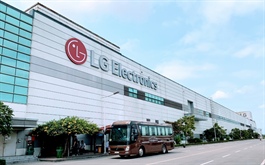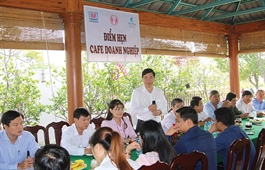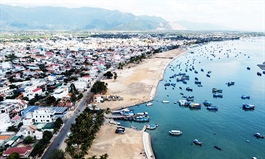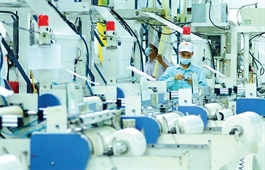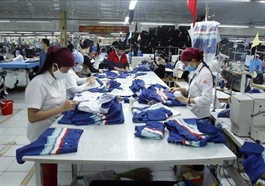PAPI displays fruits of anti-corruption drive
PAPI displays fruits of anti-corruption drive
Anti-corruption efforts by the Vietnamese government have paid off spectacularly, producing the greatest improvement in a decade and reflecting a strong increase in public confidence.
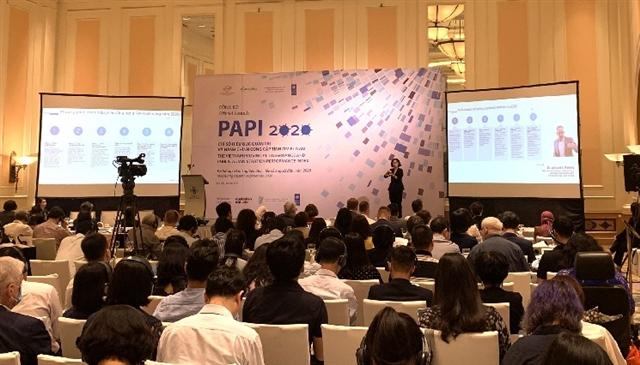
PAPI displays fruits of anti-corruption drive. Photo: VGP
|
At last week’s release of the 2020 Provincial Governance and Public Administration Performance Index (PAPI), Dr. Paul Schuler of the PAPI Research Team said that the 2016-2021 government term saw more improvements in provincial governance and public administration with the strongest improvement in the control of corruption seen in the public sector.
While each of the past five years saw corruption in the public sector better controlled, the past year saw the strongest improvement.
“The result is attributed to the country’s intensified crackdown on corruption since 2016. From the citizen perspective, the anti-corruption campaign driven by the Party seems to have permeated local-level officials,” he added.
Nationwide, the proportion of respondents claiming that bribes are necessary for state employment, public healthcare services, land use rights certificates, fair treatment by primary school teachers, and the granting of construction permits has been declining since 2016.
Regarding the importance of personal connections to gain government positions, the 2020 PAPI report shows a continued decline in this indicator, although it remains high. However, across a range of positions, the number of citizens suggesting that connections were important in hiring is at its lowest since the survey began in 2011.
As many as 18 provinces made significant progress in 2020 in controlling corruption in the public sector. As in previous years, Ben Tre performed well in this vertical, while six provinces experienced significant setbacks, with Ninh Thuan and Ninh Binh seeing the largest declines.
Nine out of the top 10 performers in controlling corruption were central and southern provinces. The top five performers in this indicator were Quang Ninh, Dong Thap, Ben Tre, Quang Tri, and Quang Nam. On the other hand, corruption was reported to be the most rampant in Lam Dong, Haiphong, Khanh Hoa, Ninh Binh, and Kon Tum.
Since 2016, personal relations have become less important in all provinces, implying that local governments have been paying more attention to the fair recruitment of state employees. However, personal relations remain important at the commune level, even among the top performers.
However, citizen feedback on bribery based on respondents’ actual experience of accessing specific public services paints a far less rosy picture. In 2020, more than 32 per cent of respondents said they paid a bribe to obtain a land use right certificate, compared to just over 22 per cent in 2019.
According to Paul Schuler, this divergence between perceptions of and the actual experience with bribes could be due to positive impressions among those who did not pay bribes, which can be ascribed as a result of anti-corruption campaigns. Alternatively, it is possible that the size of bribes has decreased, thereby improving perceptions.
Over the past years, corruption has been an issue of special concern in the business community and the public, and is often on the agenda of business conferences. Experts showed that successful anti-corruption will contribute to improving business confidence in Vietnam’s long-term sustainable development.
Australian Ambassador to Vietnam Robyn Mudie noted, “Findings from the 2020 PAPI report show that there is a correlation between good governance and effective pandemic responses. In other words, good governance matters. Looking ahead, improving governance will prove extremely useful in managing other unexpected emergency situations in Vietnam.”
Of the eight dimensions measured by the index, vertical accountability has also steadily improved during the 2016-2020 term. However, there have been declines in participation at local levels, as well as in public administrative procedures.
While general confidence levels rose, the greatest concerns of locals remained poverty and hunger, economic growth and employment, and health and health insurance.
As in each of the last five years, poverty and hunger remain the issues of greatest concern in 2020, with about 18 per cent of respondents indicating concerns. However, there has been a substantial decline in the percentage of respondents for whom this was a top concern, and this is the lowest number of respondents since 2015 to highlight these areas as their primary concerns.
On the other hand, short-term economic worries emerged, with economic growth and employment two of the top four concerns in 2020. Concerns around health and health insurance also soared, from around 2 per cent in 2019 to 17 per cent in 2020.
In PAPI 2020, 16 cities and provinces were named in the group of the “best”; 16 others were “above average”; 15 were “below average”; and 16 were dubbed the “worst”. The northern province of Quang Ninh gained the highest overall PAPI score while Danang continued to drop. Hanoi and Ho Chi Minh City both ranked at the bottom.
|
Caitlin Wiesen - Resident representative in Vietnam, UN Development Programme
Since its inception, PAPI has continued to grow and adapt new development priorities. It is now the largest citizen-centric and nationwide policy monitoring tool in Vietnam. The overall aim of PAPI is to improve the quality of government functions, the responsiveness, transparency, and accountability of public institutions, as well as ensure access to information and quality services. These are aims that also mirror the mission of the UNDP. 2020 has been a turbulent year for the world and for Vietnam. However, after two waves of COVID-19, coupled with unprecedented natural disasters with historic floods in the central region last October, I am delighted to see that PAPI findings are increasingly being used and mentioned in government documents ranging from, the Politburo, ministries, agencies, the National Assembly, and socio-political organisations. Matti Tervo - Development and Economic counsellor, Embassy of Finland
PAPI gives a good oversight of the governance within cities and provinces across Vietnam. It also shows Vietnam’s progress over the years. The index shows great efforts to improve, especially the investment environment. Some cities and provinces are more concentrated on this, with some becoming one-stop shops for foreign direct investment (FDI). We can use this data as a baseline for any investment by the Finnish government. We do not actually have that much FDI, we prefer making direct capital investments into Vietnamese companies. We hope that the market would open up a little more. We still offer public investment loans to the Vietnamese government and hope the business environment will remain open and in line with international laws, especially now we have a free trade agreement. |





